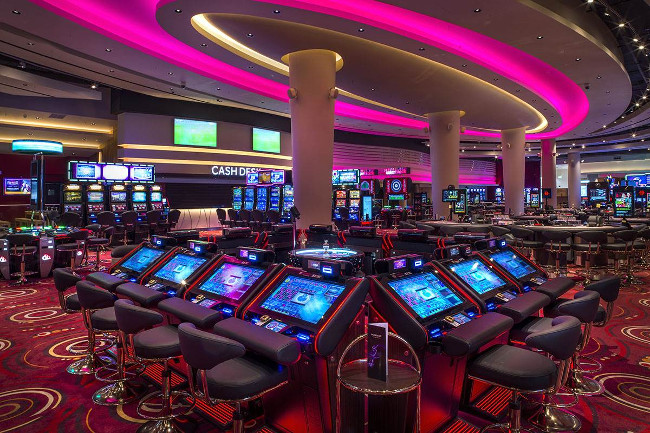
When we think of casino games, the first pictures that frequently cross our minds are those of rotating roulette devices, card chips clattering on felt surfaces, and cubes rolling across a gaming area. While numerous consider these games as mere hobbies fueled by chance, a deeper exploration reveals a captivating blend of strategy, skill, and community engagement that raises them far beyond simple chance. Whether you are a seasoned player or a inquisitive newcomer, grasping the subtleties of these games can greatly enhance your experience and understanding.
Gambling activities have developed over hundreds of years, with different cultures contributing to their diverse histories and variations. From the intricate tactics of 21 to the bluffing methods in poker, players engage in a contest of wits as much as a gamble on odds. This dynamic interplay between chance and skill creates a exciting atmosphere that draws countless people to gambling establishments worldwide. As we delve into the world of table games, we will uncover the strategies that can shift the odds in your advantage and the community aspects that make these activities a favored choice for entertainment and interaction.
A Approach of Table Games
Table gaming frequently combine a blend of ability and chance, making them intriguing for participants who enjoy a test. Each title has their own set of guidelines and tactics that can influence the outcome. For instance, in titles like 21, players are required to use tactics like card counting and understanding the odds to make informed decisions. This expertise can greatly improve the victory potential, distinguishing seasoned participants from beginners who may rely solely on luck.
In contrast, titles such as roulette may appear to be entirely based on luck, but strategic thinking can also come into play. Ga179 Participants can select between different wagering strategies, such as the Martingale system, where they increase the wagers after losses. This approach can establish a more controlled approach to the game. Grasping the odds of specific wagers can also assist players make better decisions on the table, showcasing that even in titles of luck, tactics can enhance the enjoyment.
Furthermore, poker stands out as a title that strongly focuses on tactics. In contrast to most gaming games, the game of poker merges skill, psychology, and chance. Participants must also focus on the hands they are given but also take into account their rivals’ behavior and wagering patterns. Mastering principles like table position, pot odds, and interpreting bluffing is essential for winning. This complexity of tactics in the game of poker often leads to a more engaging encounter for players, as their decisions and abilities significantly affect the match’s outcome.
Comprehending Probability and Ratios
In the realm of casino games, likelihood and ratios have a crucial role in determining a player’s possible outcomes. Every activity has its own set of rules that define how the probability of winning or failing is calculated. For instance, in games like blackjack, players have a chance to modify their ratios through tactics, whereas in matches like roulette, the outcomes are exclusively governed by chance. Grasping how these probabilities are measured can significantly affect how a gambler deals with the game.
Ratios are typically shown in two forms: ratio and decimal. Fractional odds represent the proportion of the amount gained to the amount bet, whereas decimal odds show the overall return for a winning wager, which includes the stake. For example, if a game has ratios of 5 to 1, this means that for every one dollar bet, a gambler could win five units if successful. Understanding how to interpret these odds enables gamblers to assess their possible winnings and make more educated decisions during play.
Gamblers should also be aware of the house edge, which is the casino’s built-in advantage over the players. Each game has a different house edge, and grasping this idea is crucial for managing one’s expectations and bankroll. Activities with a lower advantage, such as 21 and chemin de fer, typically offer better ratios for players compared to games like slots and keno. By recognizing the relationship between chance, ratios, and the casino advantage, players can improve their gaming engagement and plan more effectively.
The Aspect of Casino Table Games
Table games at gaming establishments are often seen as a center of community engagement, bringing participants together in a shared experience that extends far past the mere act of gambling. The atmosphere at a blackjack table can be electric, with gamblers engaging not only with the game itself but also with each other. Joy, cheers, and, sometimes, playful teasing create connections that improve the overall enjoyment of the gaming experience. This communal aspect can turn a alone endeavor into a dynamic social event, making casino games particularly enticing.
One of the intriguing elements of gaming at tables is the way it cultivates camaraderie among participants. Whether it’s collaborating to defeat the dealer at a craps table or exchanging tales between hands in a card game, the environment encourages communication. Participants often share advice or tactics, creating a sense of togetherness that boosts the fun. This social dynamic can make new players feel included and less daunted by the competitive nature of gaming. As the game continues, friendships may form, leading to a sense of connection that keeps players coming back to the table.
Moreover, the social aspect of gaming at tables extends outside just the players. Dealers play a crucial role in facilitating interaction and maintaining the flow of the game. Their ability to engage gamblers with friendly conversation and their expertise in managing the table can create an welcoming atmosphere. This connection between players and dealers adds another layer of enjoyment, where players feel connected not only to one another but also to the staff. Such interactions are often what make the experience unforgettable, as players leave with tales to tell and connections made, reinforcing the notion that table games are truly about more than just chance.